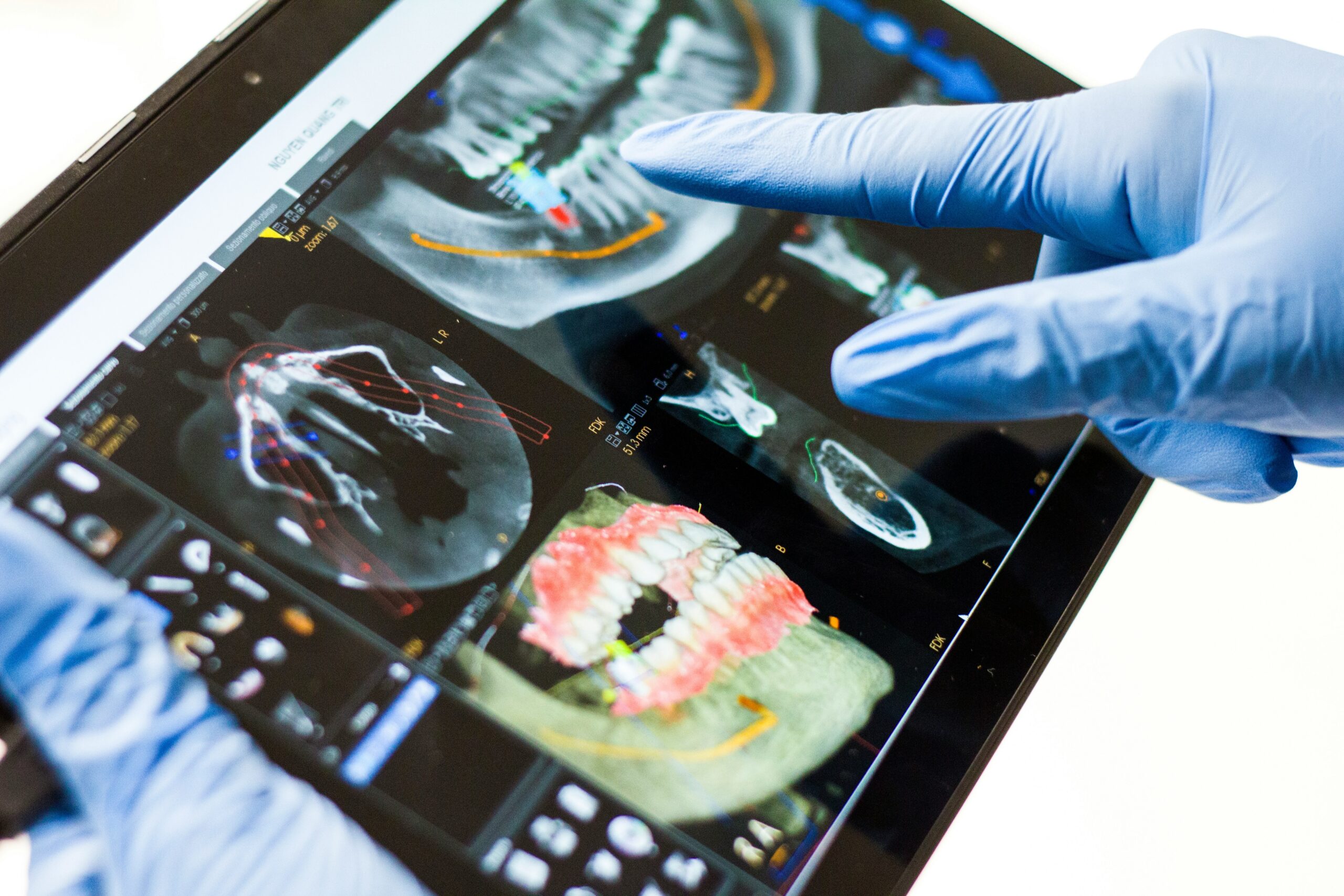Mouthwash can help with gingivitis by lowering plaque bacteria and calming inflamed gums. It does not cure gingivitis on its own. Brushing, cleaning between teeth, and a professional dental cleaning are required to reverse gingivitis.
WA Dental is an affordable family clinic in Federal Way. We help patients understand gingivitis, choose the right products, and prevent it from returning.
How Mouthwash Helps Gingivitis
Gingivitis starts when plaque bacteria irritate the gumline. A quality rinse can lower the number of bacteria and reduce bleeding while your gums heal. WA Dental builds treatment plans around daily plaque removal and professional cleanings, with mouthwash as a helpful add-on.
What mouthwash can and cannot do
Helps: Lowers the bacteria that irritate gums, improves breath, and reduces bleeding. This supports a gingivitis mouthwash treatment plan.
Cannot: Remove tartar, fix deep pockets, or replace a professional cleaning. Mouthwash to cure gingivitis is not realistic. You still need daily brushing, a consistent gingivitis rinse routine, and interdental cleaning.
Ingredients that actually matter
Cetylpyridinium chloride (CPC): Common in OTC gingivitis mouthwash. Helps kill bacteria in gums near the surface and along the gumline.
Essential oils (eucalyptol, menthol, thymol): Proven antiseptics that reduce bacterial load and support healing.
Chlorhexidine 0.12% (prescription): Strong topical antiseptic for gingivitis. Short-term use only due to staining and taste changes. Use as directed by your dentist.
Hydrogen peroxide rinses: Helpful for short-term inflammation control.
Fluoride: Not an antiseptic, but strengthens enamel while tissues heal.
What to skip
If your gums are sore, avoid alcohol-heavy formulas that dry tissues. Be cautious with aggressive whitening rinses on inflamed gums.
Best Rinse Options for Gingivitis and Early Gum Disease
Choosing a rinse is easier when you focus on ingredients. For everyday support, start with proven OTC actives. Step up to a prescription only if your dentist recommends it. Pair your rinse with solid brushing and interdental cleaning so the rinse can work.
Over-the-counter options
If you are asking “can mouthwash help gingivitis” or “does mouthwash help gingivitis”, the answer is yes when you choose OTC for gingivitis formulas with CPC or essential oils. Swish for 30 to 60 seconds and avoid rinsing with water right after so the active ingredients can act. Look for labels that mention oral rinse for gingivitis or over the counter mouthwash for gingivitis.
Pairing matters: A gingivitis toothpaste and mouthwash routine plus interdental cleaning is more effective than rinse alone.
Prescription options
For higher risk patients or after scaling and root planing, dentists may prescribe chlorhexidine. It helps control bacteria during healing. Use it exactly as prescribed and discuss side effects.
Are There Over-the-Counter Antibiotics for Gingivitis?
Many shoppers confuse antibiotics and antiseptics. There are no over the counter antibiotics for gingivitis in the United States. What you can buy are antiseptic rinses, such as CPC, essential oils, or peroxide. Antibiotics require a prescription and are used for specific periodontal situations. If gum pockets are present, a dentist may place prescription antimicrobials directly into the pocket or prescribe pills as part of care. That is not an OTC treatment for periodontal disease.
Should You Use Mouthwash If You Have Gum Disease?
Rinses help when they are part of a complete plan. If you have gingivitis or early gum disease, use a daily rinse and keep up the basics that actually remove plaque. Add professional cleanings and follow the recall schedule your dentist sets for you. If bleeding does not improve after two weeks of consistent care, schedule an exam.
Use a rinse daily while you also:
Brush for two minutes, twice a day
Clean between teeth with floss or interdental brushes
Get professional cleanings to remove tartar
Follow your dentist’s recall plan
Signs a Rinse Is Not Enough: Time to See a Dentist in Federal Way
Some symptoms point to periodontitis, which needs professional treatment. If any of the signs below show up, book a visit at our Federal Way office near The Commons and Celebration Park. Early care protects the bone that supports your teeth.
Bleeding that lasts more than two weeks
Gum recession or teeth that look longer
Bad breath that does not improve
Soreness when chewing
Loose teeth or a change in your bite
Pus or a bad taste around the gums
Best Rinse for Periodontal Disease vs Gingivitis
Gingivitis and periodontitis are different problems. Gingivitis affects the gums at the surface and responds well to plaque control, cleanings, and an antiseptic rinse. Periodontitis involves deeper pockets and bone loss, so the “best rinse for periodontal disease” is the one that supports a dentist-directed plan.
For gingivitis: CPC or essential oil rinses are good daily options.
For periodontal maintenance: Your dentist may suggest CPC or essential oils for daily use, plus short courses of chlorhexidine during flare-ups or after deep cleanings.
Peroxide-based rinses: Short-term use when inflammation is high.
Alcohol-free choices: Better if tissues are irritated.
Insurance and Affordability
Cost should not block care. WA Dental accepts many major insurance plans and offers clear estimates before treatment. We help you understand your benefits, explain any out-of-pocket costs, and design a plan that fits your budget.
How to Use Mouthwash Correctly
Technique drives results. Build your rinse into a morning and evening routine so you keep active ingredients in contact with the gums long enough to work, and do not wash them away too soon.
Brush and clean between teeth first
Measure the directed amount
Swish for 30 to 60 seconds
Avoid food and drink for at least 30 minutes if directed
Track bleeding and breath for 1 to 2 weeks, then reassess
Book a Gingivitis Check in Federal Way
Same-week visits are often available for families near The Commons at Federal Way, Celebration Park, and Dash Point. Call us or book online for a gingivitis check. We will clean thoroughly, recommend the right mouthwash to help with gingivitis, and set a home routine that fits your schedule.

